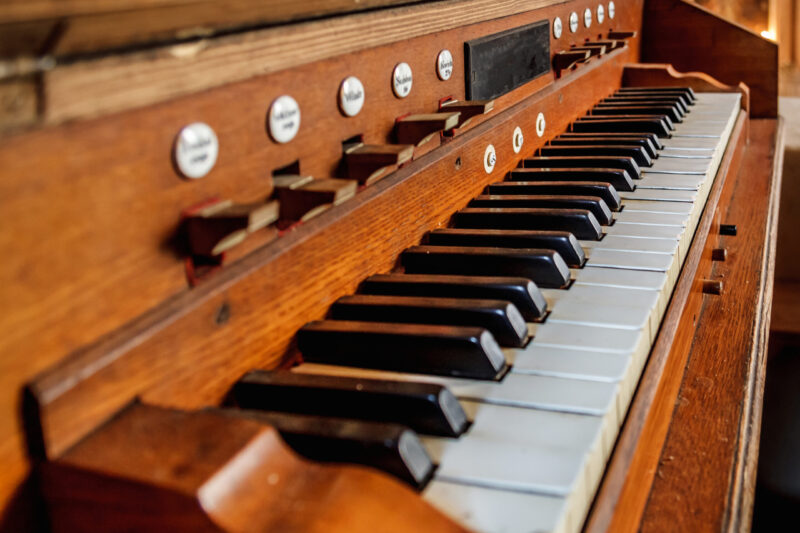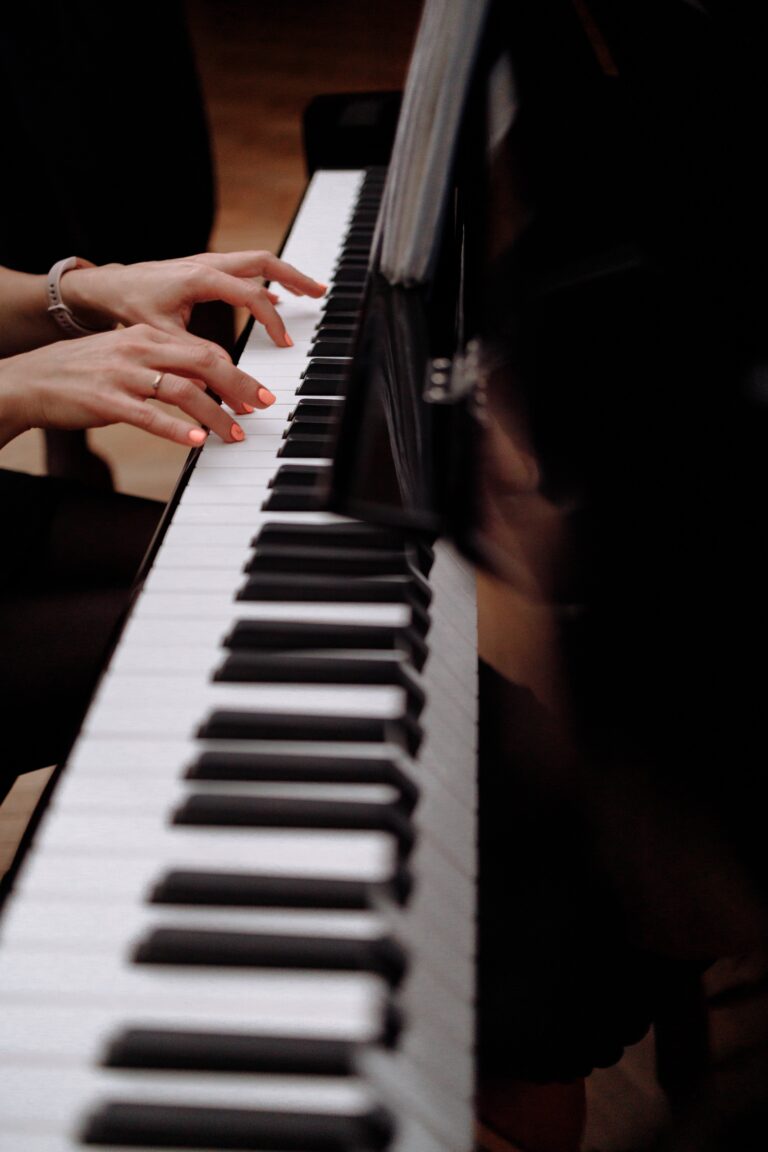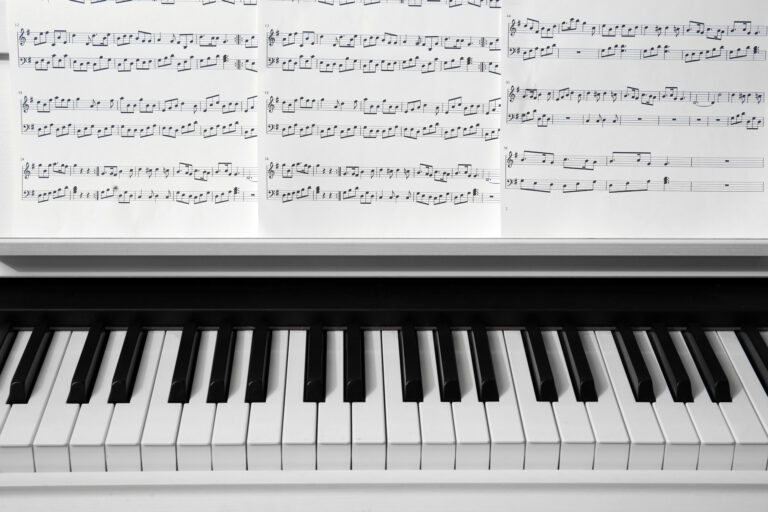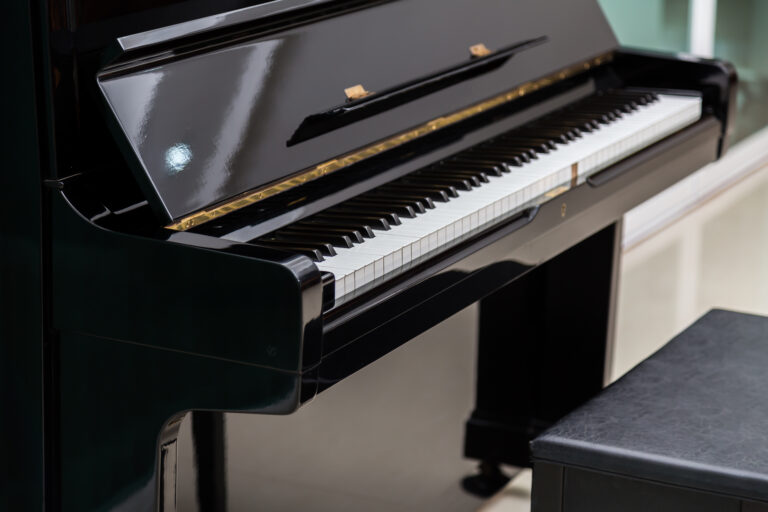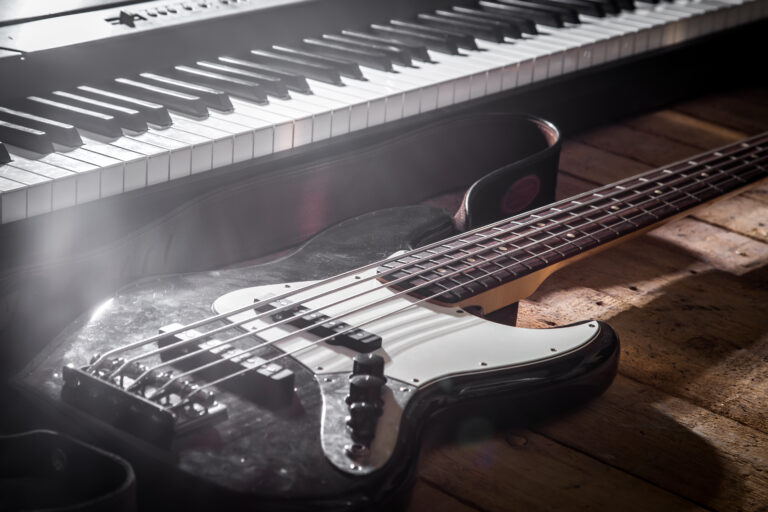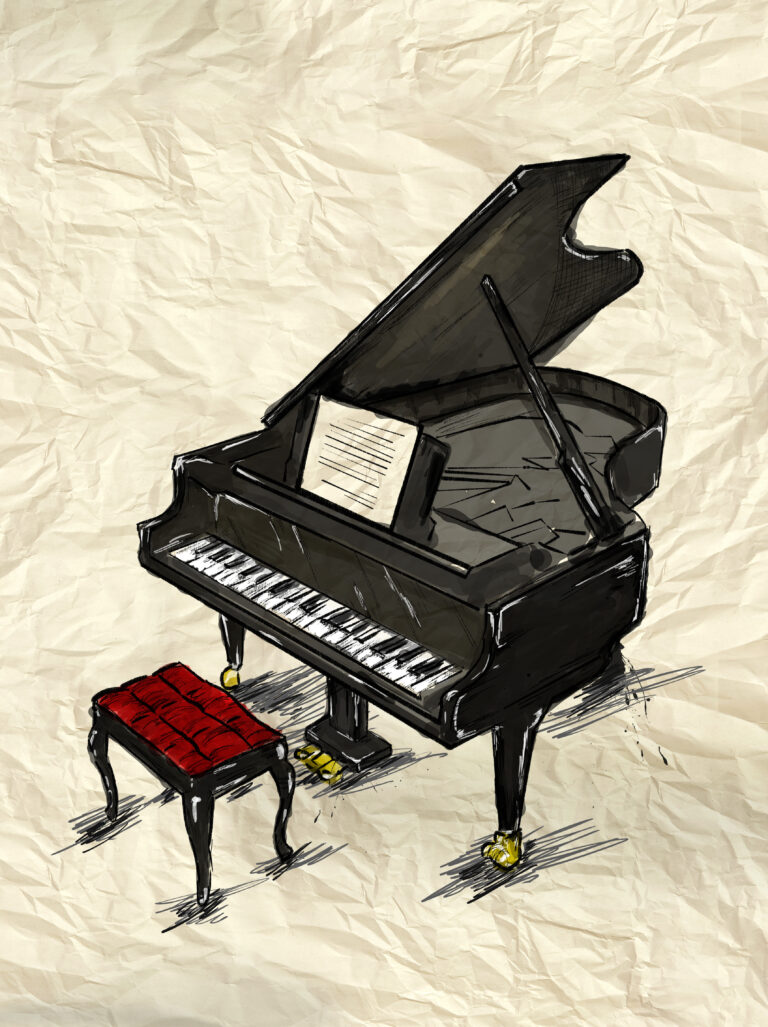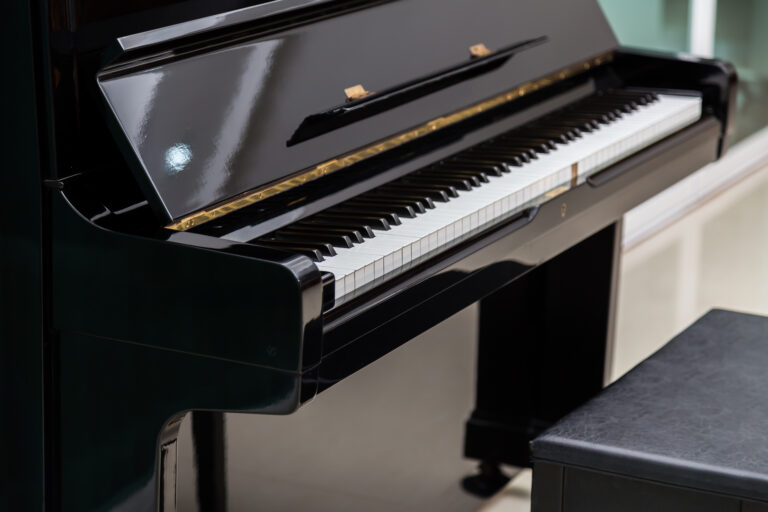Vintage Vibes: Exploring the Pros and Cons of Old Pianos
Are old pianos good? This is a question that many people ask when considering purchasing a piano. The answer, as with many things, is not a simple yes or no. There are many factors to consider when deciding whether an old piano is a good investment.
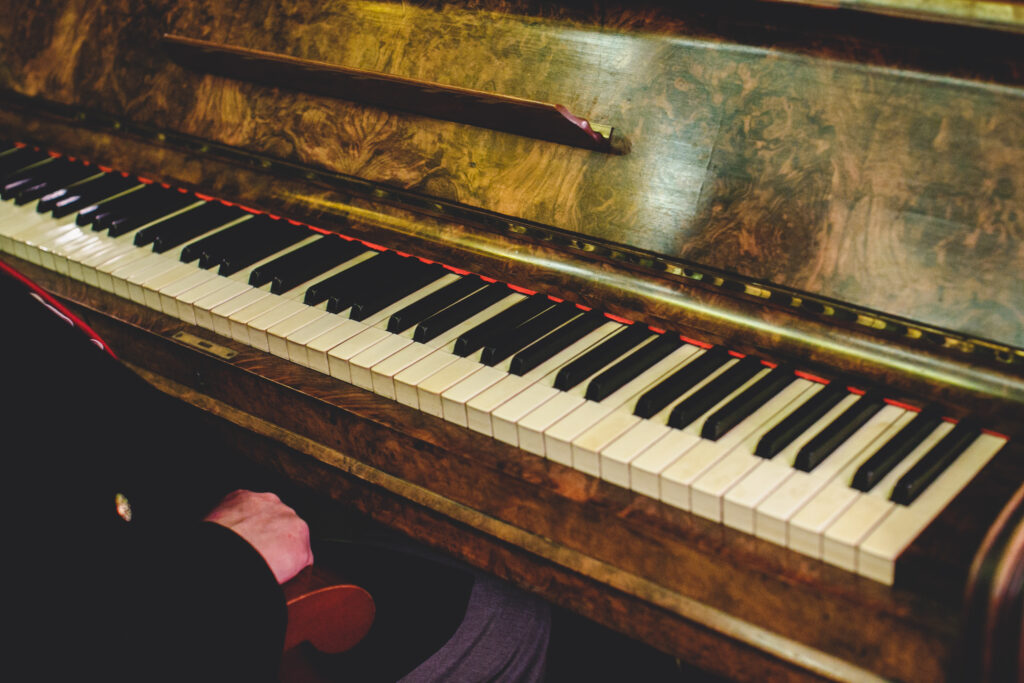
Firstly, the age of the piano is an important factor. If a piano is very old, it may have suffered from wear and tear that cannot be repaired. However, if a piano has been well-maintained and regularly serviced, it can still produce beautiful music even after many years of use. Additionally, older pianos may have been built with higher-quality materials and craftsmanship, which can make them more desirable to some musicians.
Another important consideration is the condition of the piano. Even if a piano is relatively new, if it has not been properly cared for, it may not be a good investment. On the other hand, an older piano that has been well-maintained and restored may be a better choice. Ultimately, the decision of whether an old piano is good or not depends on a variety of factors and should be made on a case-by-case basis.
Historical Value of Old Pianos

If you are considering purchasing an old piano, you may be interested in its historical value. Old pianos can offer a glimpse into the past and provide a unique connection to the musicians and composers who played them.
One of the most significant historical values of old pianos is their connection to famous musicians and composers. For example, if you were to purchase a piano that was owned and played by Beethoven, it would be considered a priceless artefact. Even if you cannot afford a piano with such a rich history, owning an old piano that was played by a lesser-known musician or composer can still be a meaningful connection to the past.
Old pianos can also offer insight into the evolution of piano design and technology. For example, if you were to compare an old piano to a modern one, you would notice differences in the size, shape, and sound quality. This can be a fascinating way to learn about the history of music and the piano.
In addition to their historical value, old pianos can also have sentimental value. Many families pass down old pianos from generation to generation, and they become treasured family heirlooms. Even if the piano is not in perfect condition, its sentimental value can make it worth keeping and restoring.
The historical value of old pianos can be significant, and they can offer a unique connection to the past. Whether you are a musician or a history buff, owning an old piano can be a fascinating and rewarding experience.
Sound Quality of Aged Instruments
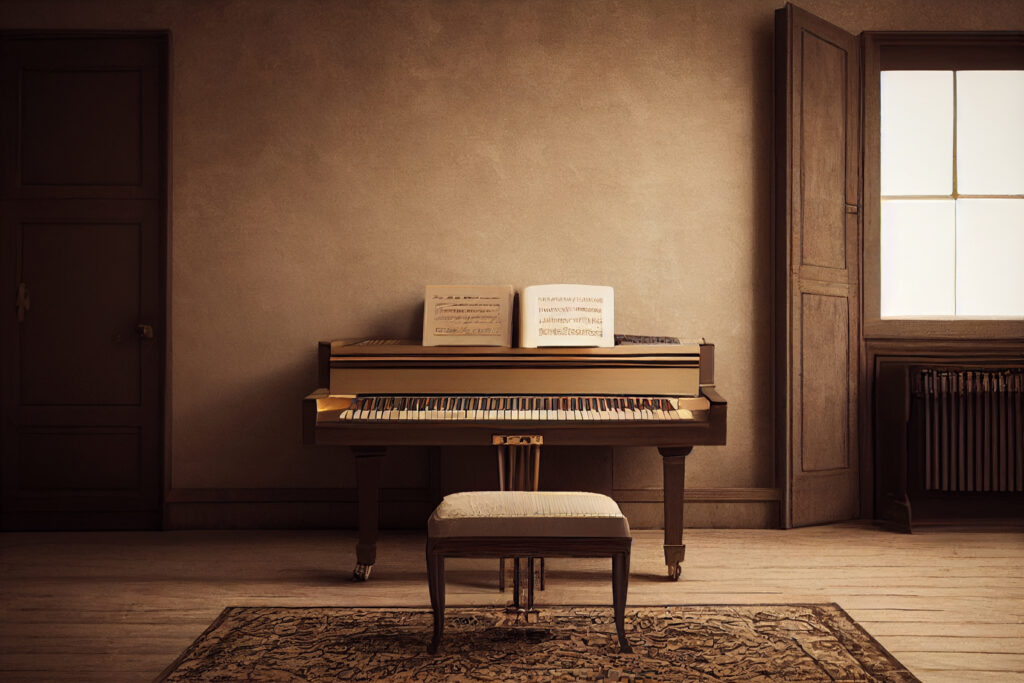
Timbre and Resonance
One of the most significant advantages of an old piano is its unique timbre and resonance. Over time, the wood and strings of a piano mature and develop a distinct sound that cannot be replicated by a new instrument. The sound of an old piano is warmer and richer, with a depth that is difficult to achieve with a new piano.
The timbre of an old piano is also affected by the environment in which it has been kept. If the piano has been in a room with high humidity, the soundboard may have expanded, resulting in a brighter and more resonant tone. Conversely, if the piano has been in a dry environment, the soundboard may have contracted, resulting in a darker and more mellow tone.
Tuning Stability
A common misconception about old pianos is that they are out of tune and cannot be tuned properly. However, this is not necessarily true. While it is true that an old piano may require more frequent tuning, it is possible to achieve excellent tuning stability with an old instrument.
The tuning stability of an old piano is affected by several factors, including the quality of its components and the care it has received over the years. If the piano has been well-maintained, with regular tuning and maintenance, it is likely to have good tuning stability.
In summary, the sound quality of aged instruments is unique and cannot be replicated by a new piano. The timbre and resonance of an old piano are affected by the wood, strings, and environment in which it has been kept. The tuning stability of an old piano is affected by the quality of its components and the care it has received over the years.
Craftsmanship and Durability of Old Pianos

Materials and Construction
Old pianos were crafted with high-quality materials and construction techniques that were designed to last for generations. The frames of these pianos were made of solid wood, such as maple or spruce, which provided stability and strength. The soundboards were also made of high-quality wood, which helped to produce a rich and resonant sound.
The keys of old pianos were made of ivory or ebony, which were highly durable and resistant to wear. The hammers were made of felt, which was carefully crafted to produce a precise and consistent sound. The strings were also made of high-quality materials, such as steel or copper, which provided a clear and vibrant tone.
Longevity and Wear
Old pianos are known for their durability and longevity. With proper care and maintenance, these instruments can last for decades or even centuries. The solid wood frames and soundboards are highly resistant to warping or cracking, which can affect the sound quality of the piano.
The keys of old pianos are also highly durable and resistant to wear. Ivory and ebony keys are known for their resistance to cracking and chipping, and they can withstand years of heavy use. The hammers and strings of old pianos are also designed to last for many years, and they can be easily replaced or repaired if necessary.
The craftsmanship and durability of old pianos make them a great investment for anyone who is looking for a high-quality instrument that will last for many years. Whether you are a professional musician or a casual player, an old piano can provide you with a rich and satisfying musical experience that will last a lifetime.
Considerations for Buying an Old Piano
When considering purchasing an old piano, there are several factors you should take into account. Here are some key considerations to keep in mind:
Brand and Model Recognition
One important factor to consider when buying an old piano is brand and model recognition. Some brands, such as Steinway and Baldwin, are known for producing high-quality instruments that have stood the test of time. On the other hand, lesser-known brands may not have the same reputation for quality and may be more difficult to resell.
Restoration Potential
Another important consideration is the restoration potential of the piano. Old pianos may require some level of restoration work to bring them back to their former glory. Before making a purchase, it’s important to assess the condition of the instrument and determine what kind of restoration work may be necessary. This can help you determine whether the piano is worth the investment.
Market Value
Finally, it’s important to consider the market value of the piano. While some old pianos may be valuable due to their brand or historical significance, others may not be worth very much at all. Researching the market value of the piano can help you determine whether the price being asked is fair and whether the piano is a good investment overall.
In summary, when considering purchasing an old piano, it’s important to consider factors such as brand and model recognition, restoration potential, and market value. By taking these factors into account, you can make a more informed decision about whether an old piano is right for you.
Challenges with Old Pianos
If you are considering purchasing an old piano, it is important to be aware of the potential challenges that come with it. While old pianos can have a unique charm and character, they can also require more maintenance and repairs than newer models.
Maintenance and Repairs
Old pianos may require more maintenance and repairs due to their age and wear and tear. The strings, hammers, and other components may need to be replaced or repaired, which can be costly and time-consuming. Additionally, the soundboard may crack or warp over time, affecting the overall sound quality of the piano.
Regular maintenance and tuning can help prevent some issues, but it is important to factor in the cost and time required for upkeep when considering an old piano.
Parts Availability
Another challenge with old pianos is the availability of parts. Some older models may require specific parts that are no longer manufactured or difficult to find. This can make repairs more challenging and expensive, as custom parts may need to be created or sourced.
It is important to research the availability of parts for a specific model of piano before making a purchase. If parts are difficult to find or expensive, it may not be worth investing in an old piano.
Overall, while old pianos can have a unique character and appeal, they require careful consideration before purchasing. It is important to be aware of the potential challenges with maintenance and repairs, as well as the availability of parts. By doing your research and weighing the pros and cons, you can make an informed decision about whether an old piano is right for you.
Frequently Asked Questions
What factors determine the value of an antique piano?
The value of an antique piano is determined by several factors, including the age, condition, brand, and rarity of the instrument. Other factors that may affect the value include the quality of the materials used in its construction, the craftsmanship, and the historical significance of the piano.
How does age affect the quality and worth of an upright piano?
Age can have a significant impact on the quality and worth of an upright piano. Generally, the older the piano, the more valuable it is, especially if it is well-preserved and in good condition. However, age alone is not the only determining factor in the value of an upright piano.
Can the brand of an old piano significantly influence its market price?
Yes, the brand of an old piano can significantly influence its market price. Some brands are more sought after than others and therefore command higher prices. The quality of the brand and its reputation for producing high-quality instruments can also affect the value of an old piano.
What should one consider before purchasing a piano over 50 years old?
Before purchasing a piano over 50 years old, it is important to consider its condition, history, and maintenance. You should inspect the piano thoroughly for any signs of wear and tear, damage, or repairs. You should also research the history of the piano, including its previous owners and any maintenance or repairs that have been performed on it.
Is there a market demand for pianos that are 100 years old or more?
Yes, there is a market demand for pianos that are 100 years old or more. These pianos are often considered rare and valuable, especially if they are in good condition and have been well-preserved over the years.
How do you assess the condition and value of a 30-year-old upright piano?
To assess the condition and value of a 30-year-old upright piano, you should inspect the instrument for any signs of wear and tear, damage, or repairs. You should also research the brand and model of the piano to determine its value on the market. It is also recommended to have the piano evaluated by a professional piano technician to ensure that it is in good working condition.
